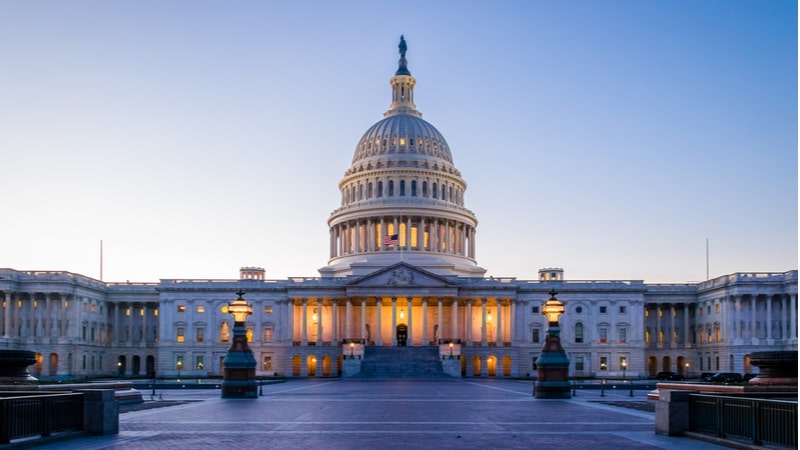
President Donald Trump’s decision to concede key export controls to China for a year undermines U.S. national security and disrupts efforts to prevent American semiconductors from reaching Chinese-affiliated entities, Democratic senators warned.
“We write with concern about your decision to suspend critical Bureau of Industry and Security (BIS) export controls for one year as a concession to China. Prior Presidents have refused to negotiate away national security controls. You, in contrast, have turned export controls into a chip to bargain away,” wrote a group of eight Democratic senators led by Sen. Ron Wyden, D-Ore., in a letter to Trump.
“In return, you have received very little: a temporary truce in your disastrous trade war that leaves Americans worse off than when you took office and preserves a status quo in which China is undercutting U.S. national and economic security,” the senators added.
Trump and Chinese leader Xi Jinping came to an agreement during a bilateral summit late last month that temporarily rolled back recent tariff and export control escalations.
One of those stipulations included suspending the “affiliates rule” until Nov. 2026, which expanded export control restrictions to cover entities owned 50% or more by blocked companies on BIS’s Entity List.
According to Wyden and the other senators, prior to that rule, which was implemented by BIS in September, restricted companies would create subsidiaries or shell companies to evade export controls and obtain advanced U.S. technologies such as artificial intelligence (AI) chips and surveillance technology.
“Not only does the suspension of this rule reopen the loophole immediately, it also provides a year-long opportunity for affiliates of blacklisted foreign firms to restructure in order to evade the rule if and when it is reinstated,” wrote the senators.
Companies that have used loopholes blocked by the affiliates rule included Huawei, which senators said created “numerous subsidiaries,” and forced BIS to add at least 149 Huawei subsidiaries to the Entity List in what lawmakers called “a whack-a-mole effort.”
An additional estimated 20,000 subsidiaries and affiliates of listed companies in China would be subject to restrictions under the affiliates rule, senators added.
“Not only that, but the rapid back-and-forth between the initial announcement and subsequent suspension of this rule also inhibits the ability of American companies to plan and conduct critical supply chain due diligence efficiently,” the letter said.
“The affiliates rule takes important steps to modernize U.S. list-based export controls, but it also imposes significant due diligence requirements on U.S. companies that do business abroad,” the letter continued, adding that the suspension “will cause compliance difficulties for companies that are making good-faith efforts to proactively comply with all export controls and are now dealing with an increasingly uncertain regulatory environment.”
